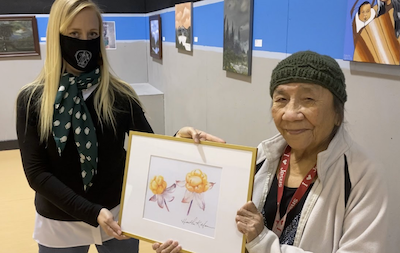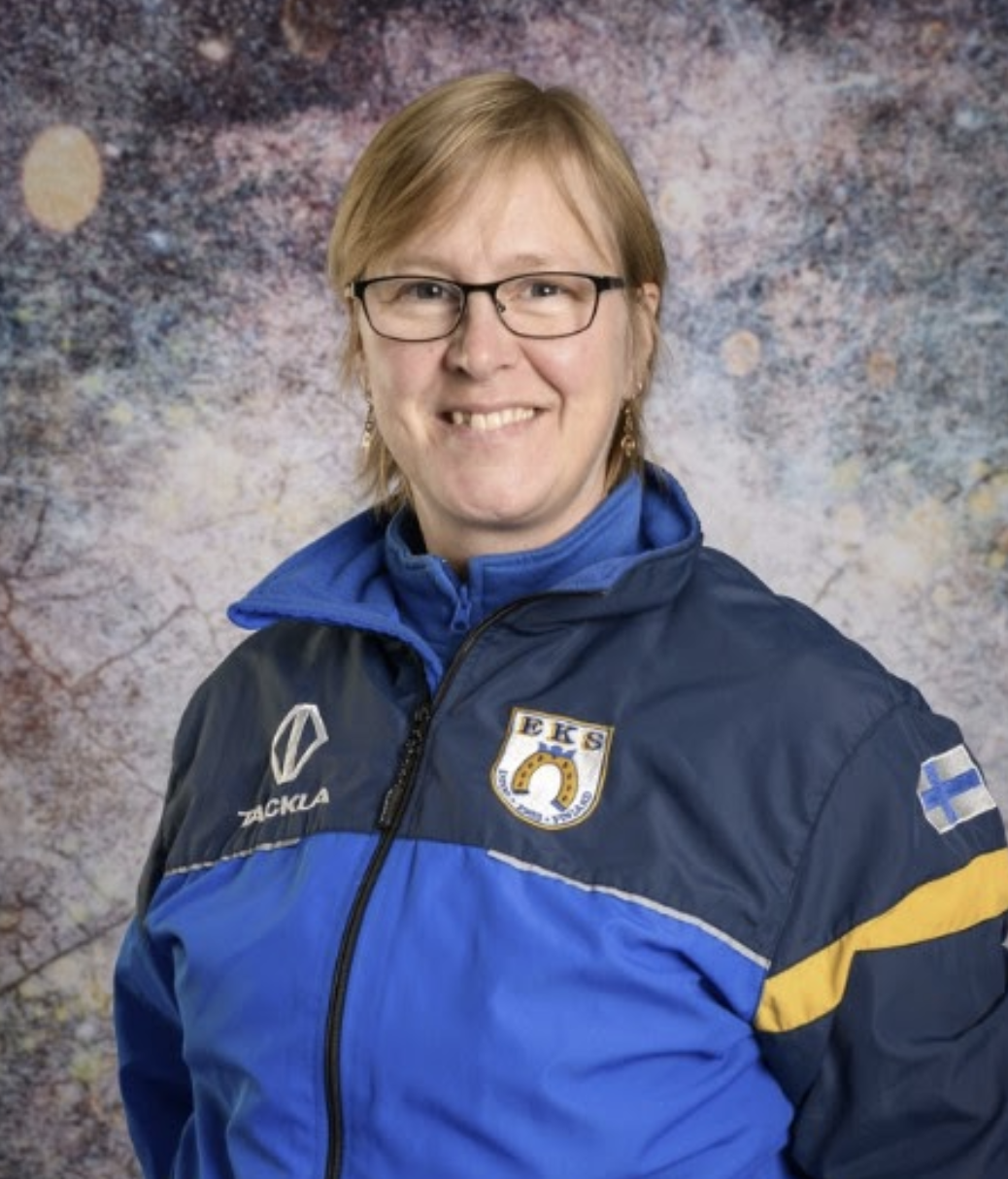Embracing Community, Culture and Creativity
Wednesday, February 24, 2021 /
“Right after I graduated from Lakehead with my Honours of Fine Arts and Bachelor of Education, I moved to God’s Lake First Nation to teach,” says Heather Mason (née Martin) (HFA/BEd'08). “I didn’t want to be stuck substitute teaching in southern Ontario for years and years.”
God’s Lake is fly-in reserve 550 km north of Winnipeg – the community is only accessible by plane or by winter roads when the ice freezes. “I’ve always been drawn to the outdoors,” Heather says, “and it seemed like a really exciting adventure.” 
She describes the people in this community of just over 3,000 as “friendly, funny, warm, and welcoming.”
It was a life-changing decision – she stepped into a challenging career, teaching children from Grade 3 to Grade 9 and when she wasn’t teaching, she was coaching basketball, volleyball, cross country running, and badminton.
Heather met her husband in God’s Lake and became a parent to two stepchildren – a girl and a boy. The couple also has a seven-year-old-son and a 17-year-old foster son. “They’re great kids,” Heather says, “They are very calm and respectful and we’re extremely proud of them.”
Becoming part of the God’s Lake community has given Heather the chance to engage her students’ creative abilities.
“Our school doesn’t have an arts program,” she explains, “so I’m always looking for grants that enable artists to come to the community. We’ve had drummers and mural artists come to our school, as well as a music video production crew – N’we Jinan – that made a professional video with the students called “Back to Us.”
One of her more recent projects in collaboration with fellow artist Kevin Burton, “Nisitotah,” received a grant from The Manitoba Arts Council.
“It means “to listen” in Cree,” Heather says. “We invited artists in the God’s Lake community to listen to stories from Elders and then create paintings inspired by these stories. It was a different way to pass on oral history and traditions.”

These kinds of endeavours, and Heather’s commitment to her students, led to her receiving a CBC Manitoba Future 40 award in the category of Arts, Culture & Entertainment in 2020. Every year, these awards are given to an outstanding group of 40 individuals under 40 years of age.
Several months ago, Heather embarked on a new chapter in her teaching journey. In August 2020, she became the vice-principal of the God’s Lake Narrows First Nation School because, she says, “I wanted to be a champion for the staff and help change the system.” This had been a long-term goal that prompted Heather to earn a Master of Educational Leadership and Administration from Brandon University in 2019.
Although Heather is happy with the new course she’s chosen, she does miss the day-to-day interactions with the students. One of her favourite activities as a teacher was organizing the Grade 9 students’ yearly graduation trip to Churchill, Manitoba.
“It requires huge amount of planning,” Heather says, “but the payoff was watching the students’ excitement when they boarded a train for the first time or kayaked and paddle boarded with beluga whales. It connects them to their peers, the land, and wildlife all at once.”
These kinds of experiences reaffirm that coming to God’s Lake all those years ago was one of the best decisions Heather has ever made.






